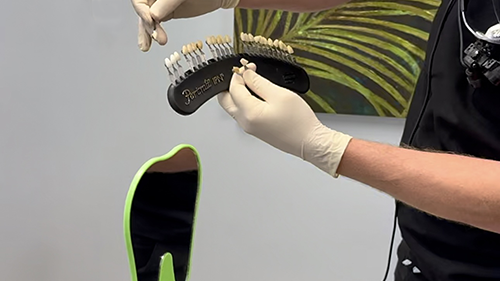
Crowns
A dental crown is a custom-made cap that covers a damaged or weakened tooth, restoring its shape, size, strength, and appearance. Crowns are used to protect teeth that have been compromised by decay, fractures, or large fillings, and they can also be used to improve the appearance of misshapen or discolored teeth. Crowns completely encase the visible portion of a tooth above the gum line, providing protection and enhancing the tooth's functionality.
When Are Dental Crowns Needed?
- To protect a tooth weakened by decay or injury from further damage.
- To restore a broken or severely worn-down tooth.
- To cover and support a tooth with a large filling when not enough of the tooth remains.
- To secure a dental bridge in place.
- To cover misshapen or severely discolored teeth.
- To cover a dental implant.
- To protect a tooth after a root canal treatment.
Types of Dental Crowns
- Porcelain or Ceramic Crowns – These crowns are popular for their natural appearance, as they closely match the color of natural teeth. They are ideal for front teeth where aesthetics are important.
- Metal Crowns – Made from metals such as gold or alloys, these crowns are highly durable and withstand the forces of chewing and biting. However, they are more visible, making them more suitable for molars at the back of the mouth.
- Porcelain-Fused-to-Metal (PFM) Crowns – These crowns combine the strength of metal with the aesthetic appearance of porcelain, making them a popular choice for both front and back teeth.
- Resin Crowns – These crowns are generally more affordable but may wear down more quickly compared to other materials.
The Dental Crown Procedure
Getting a dental crown usually involves two visits to the dentist:
- Preparation: During the first visit, the tooth is prepared by removing a portion of its outer structure to make space for the crown. Impressions of the tooth are taken and sent to a dental lab, where the crown is custom-made. A temporary crown is placed over the tooth to protect it until the permanent crown is ready.
- Placement: At the second visit, the temporary crown is removed, and the permanent crown is fitted and bonded to the tooth using a strong adhesive. The dentist will make any necessary adjustments to ensure a comfortable fit and proper bite alignment.
Benefits of Dental Crowns
- Restore the function and strength of damaged teeth.
- Provide long-term durability with proper care.
- Improve the appearance of discolored or misshapen teeth.
- Offer protection for teeth after procedures like root canals.
Dental crowns are an effective way to restore damaged or weakened teeth and improve the overall appearance of your smile. With proper care, crowns can last for many years, ensuring the health and functionality of your teeth.

